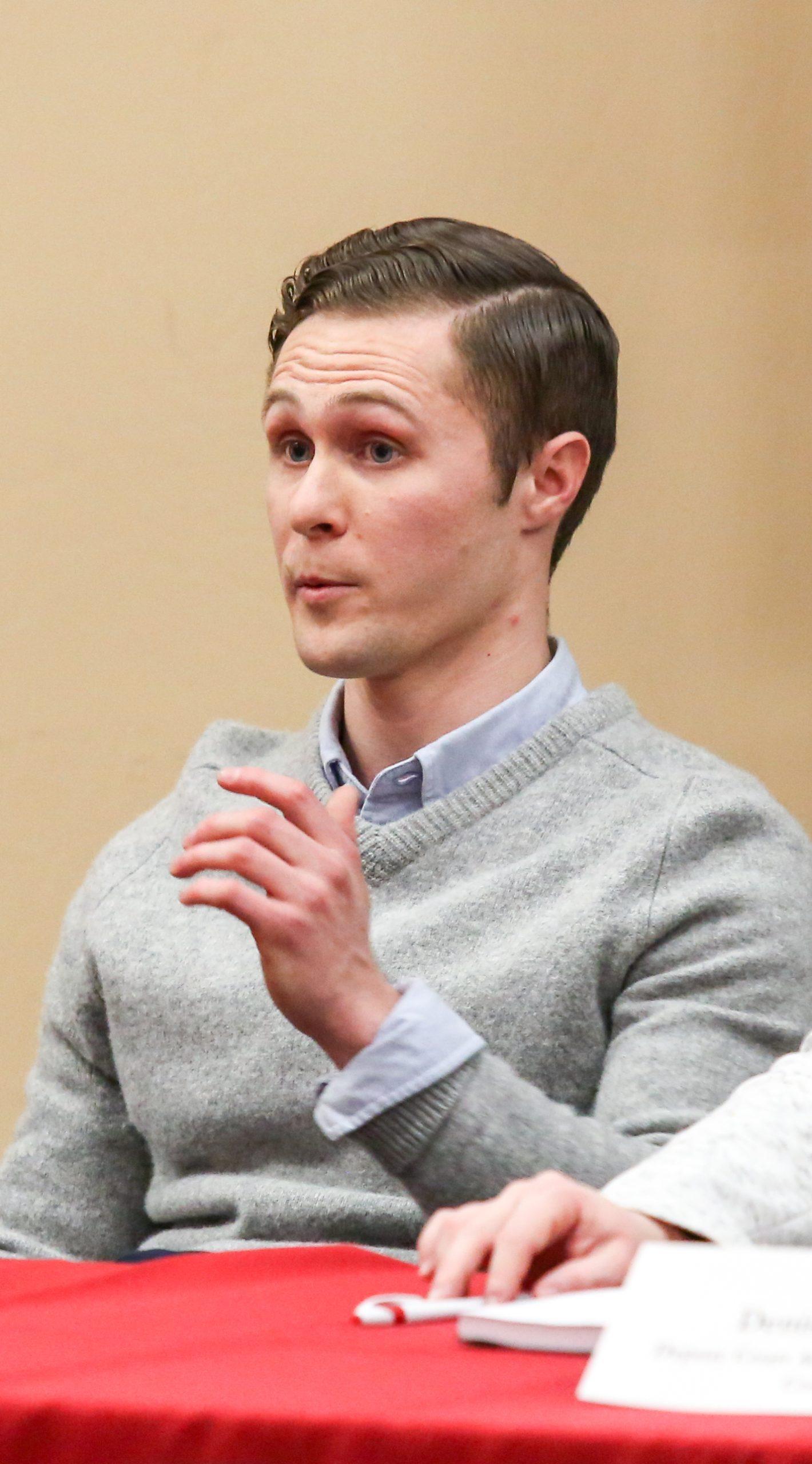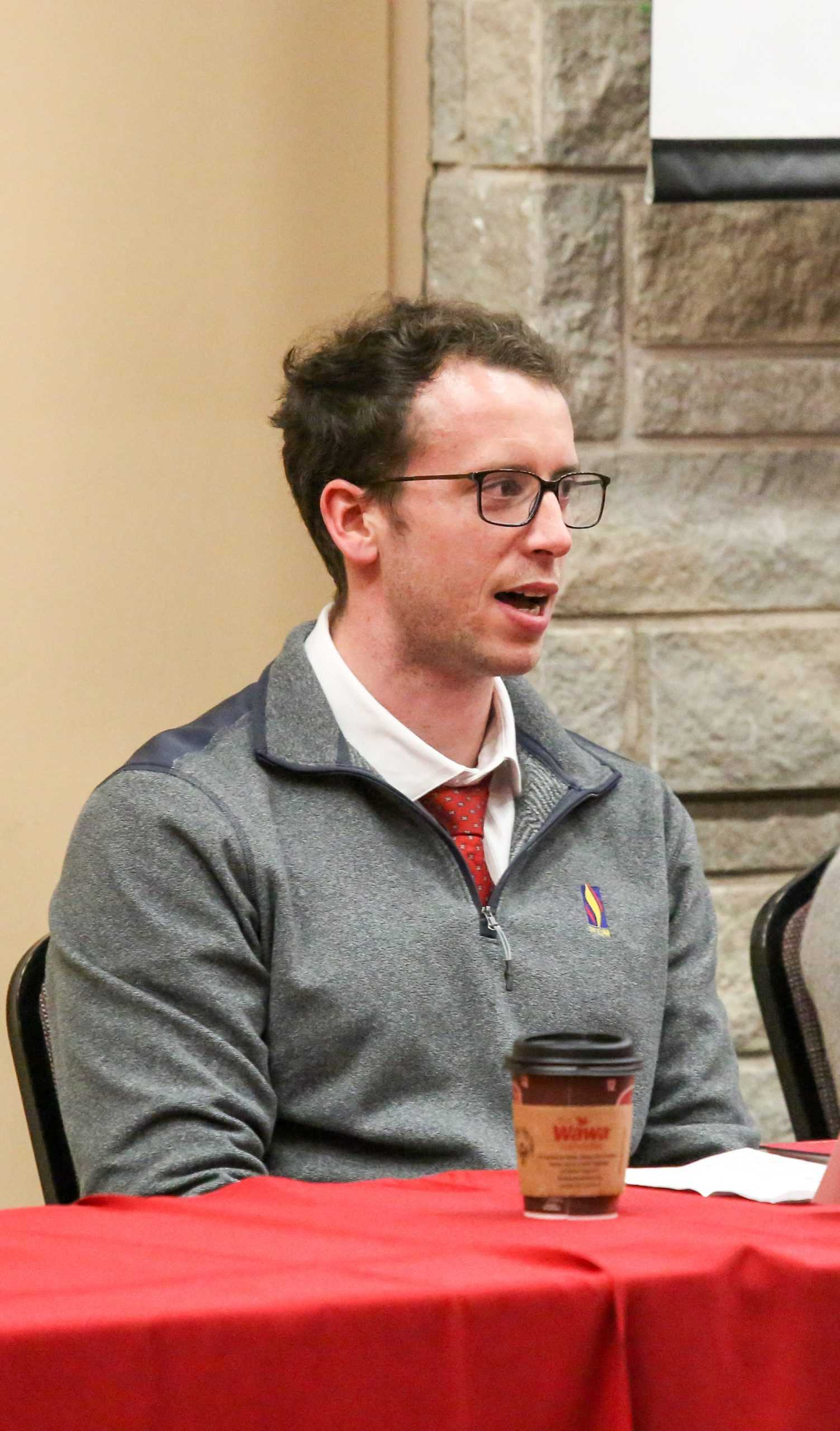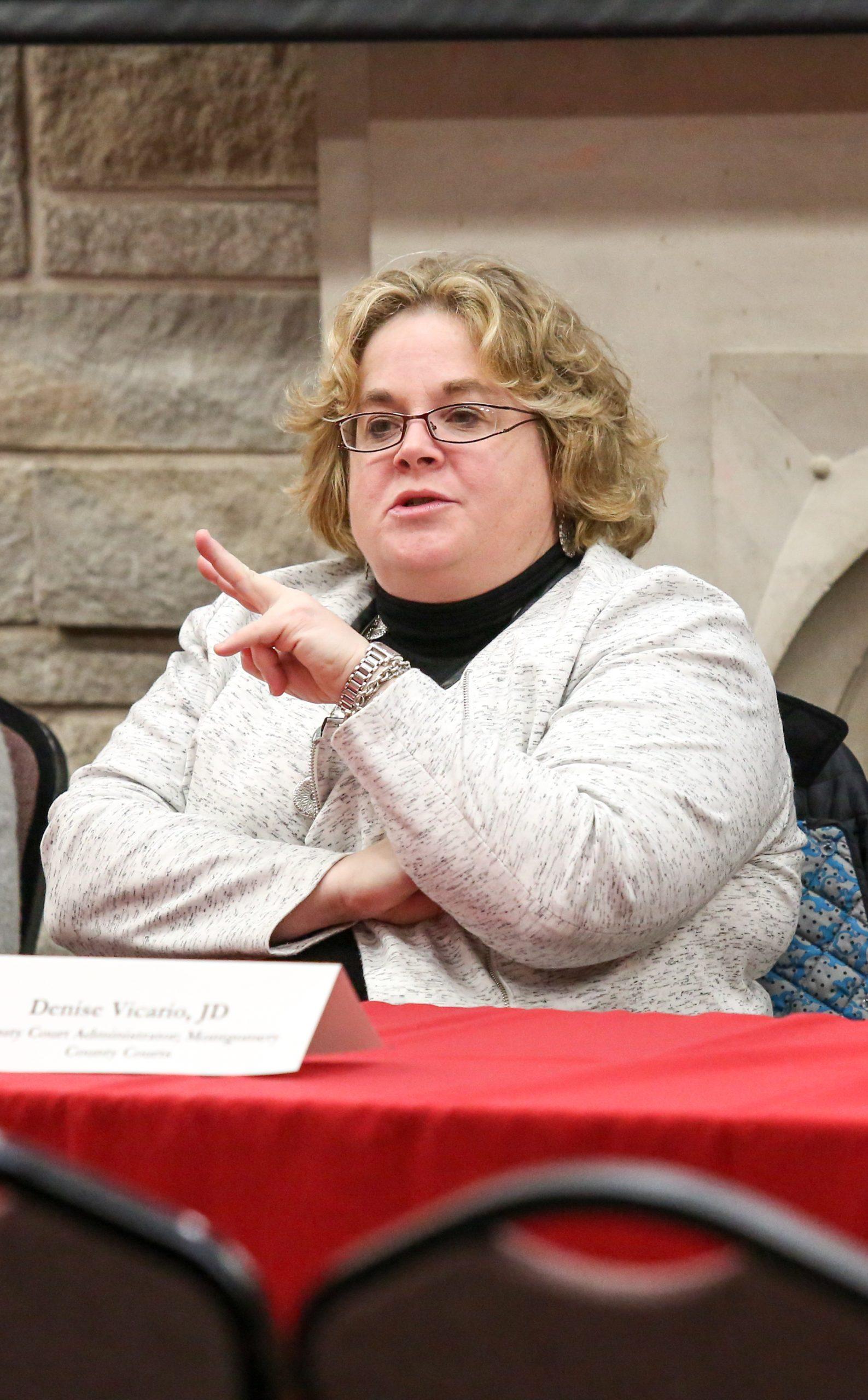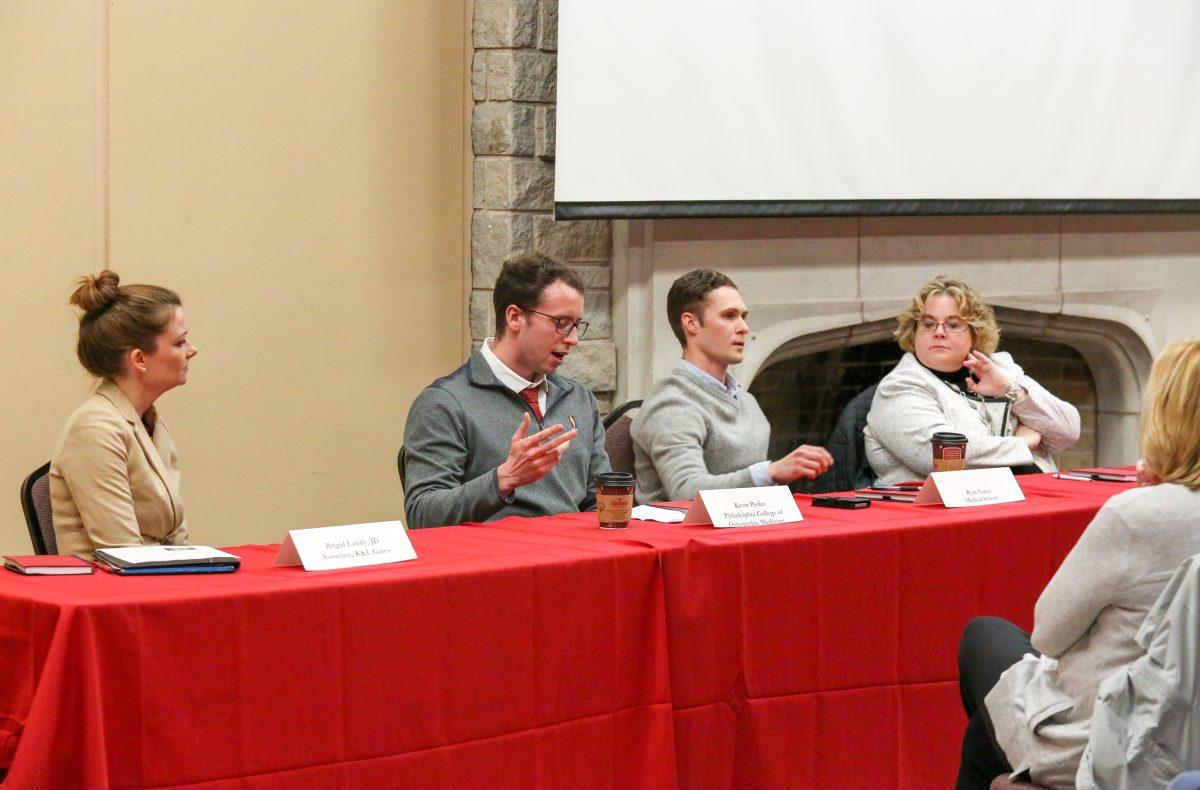St. Joe’s students take a year between undergradate and professional school
The Career Development Center held an alumni panel on March 28 for current students to hear four former Saint Joseph’s University students discuss the benefits of taking a gap year.
Gap years provide students who just graduated the opportunity to do service, research, be a legal assistant or to take on a professional job, before continuing on with graduate school or professional school.

“We are kind of back to where the majority of applicants for law school or medical school take some time in between undergrad and the professional school,” said Christine Falcone, assistant director of the Career Development Center.
Falcone sees more students taking a year off post-graduation because it strengthens an application when applying to graduate school, law school or medical school.

“You’re coming in having had a break from being in the classroom and you’re coming in typically with some type of experience that you’ve had for one or two years,” Falcone said. “It usually gives you a strengthened skill set, but it also gives you perspective and things to apply what you’re learning in the class too.”
A gap year can give someone the opportunity to learn more from experience than learning from the classroom setting, which then creates a stronger application.
“Students who hear that are taking that advice and taking the time to take the year or two to strengthen the application,” Falcone said. The featured alumni were Brigid Landy, ’08, who took a year to travel Europe; Kevin Peifer, ’14, who took a year to work at a medical job; Ryan Vance, ’16, who is doing a year of service; and Denise Vicario, ’93, who worked at Montgomery County District Attorney’s Office.
Peifer took a gap year and worked with Emergency Care Research Institute (ECRI), a non-profit company that evaluated medical devices and procedures. After that he did a post-baccalaureate program at the Philadelphia College of Osteopathic Medicine (PCOM).

Peifer said it gave him the chance to see what he didn’t want to do and what he did want to do. Peifer’s gap year gave him experience in a hospital and gave him a foundation that then helped him end up in the field he hoped to be in.
“Use your resources really well,” Peifer said. “Don’t be dissuaded and make sure you pursue what you want to do.”
Falcone thinks choosing to do a gap year is specific to the student and what they want to do in the future.
“I think when I’m working with students one on one, to me it’s about having a conversation with the student in identifying and talking about the pros of it [a gap year] and also listening to the student and hearing if they want to go straight through [to graduate school],” Falcone said.
Jenny Schadt, ’17, is going to Uganda for an internship with the Uganda Village Project for the first two months of her gap year. “I really wanted to spend a year not inside of a library,” Schadt said.
“Being a premed [student], it is really intense studying, so there’s a lot of time spent holed up at the library and I didn’t really get to do too much or study abroad.”
Schadt hopes to gain experience from her gap year and meet people that she would not meet if she did not have this opportunity.

“I am just really hoping to see the world and gain more perspective and experiences and also kind of get back that hunger for learning things because I feel kind of burnt out from college,” Schadt said. “I kind of want to get back the renewed excitement for learning again.”
There is no downside to taking a year and exploring options, according to Falcone.
“I think the downside that is perceived is there’s a time where you may think you don’t want to go anymore and you just might lose the energy,” Falcone said.
Students considering a gap year are advised to keep track of what they are learning in that year and what skills they have developed.
“I think really thinking to yourself ‘why am I taking this year, what am I hoping to get out of it?’ and then making sure the opportunities are meeting those needs,” Falcone said.













































